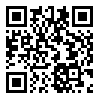دوره 10، شماره 1 - ( 1403 )
جلد 10 شماره 1 : e5 |
برگشت به فهرست نسخه ها
Download citation:
BibTeX | RIS | EndNote | Medlars | ProCite | Reference Manager | RefWorks
Send citation to:



BibTeX | RIS | EndNote | Medlars | ProCite | Reference Manager | RefWorks
Send citation to:
Moulazadeh K, Dasht Bozorgi Z. The Effectiveness of Narrative Therapy on Emotional Intelligence, Anger Management, and Social Adjustment in Children with Attention Deficit Hyperactivity Disorder. CJP 2024; 10 (1)
URL: http://caspianjp.ir/article-1-239-fa.html
URL: http://caspianjp.ir/article-1-239-fa.html
The Effectiveness of Narrative Therapy on Emotional Intelligence, Anger Management, and Social Adjustment in Children with Attention Deficit Hyperactivity Disorder. مجله کاسپین کودکان. 1403; 10 (1)
چکیده: (3081 مشاهده)
Background and Objective: Children diagnosed with attention deficit hyperactivity disorder (ADHD) frequently exhibit challenges in emotional regulation and social interaction. This study aims to investigate the potential of narrative therapy, a collaborative storytelling approach, to enhance emotional intelligence, anger management, and social adjustment among this population.
Methods: A quasi-experimental pretest-posttest design with a control group was applied for this study. The target population encompassed all children diagnosed with ADHD residing in Ahvaz City during 2023. A convenience sample of 28 participants was randomly assigned to either an experimental (n=14) or control (n=14) group. Data were collected using the Emotional Intelligence Questionnaire, the Child Behavior Aggression Scale, and the Social Adjustment Scale. The experimental group received seven 40-minute narrative therapy sessions, while the control group served as a no-treatment group. Analysis of covariance (ANCOVA) was used to analyze the data.
Findings: The post-test analysis revealed a significant difference between the narrative therapy and control groups in all three domains (P<0.01). The narrative therapy group demonstrated substantially higher scores in emotional intelligence (82.18±14.05 vs. 70.54±12.11), anger management (50.12±9.31 vs. 37.49±6.75), and social adjustment (32.16±5.12 vs. 22.49±4.87).
Conclusion: The findings suggest that narrative therapy constitutes an effective intervention for enhancing emotional intelligence, anger management, and social skills in children diagnosed with ADHD. Moreover, narrative therapy emerges as a valuable tool for addressing the emotional and social challenges commonly experienced by this population
Methods: A quasi-experimental pretest-posttest design with a control group was applied for this study. The target population encompassed all children diagnosed with ADHD residing in Ahvaz City during 2023. A convenience sample of 28 participants was randomly assigned to either an experimental (n=14) or control (n=14) group. Data were collected using the Emotional Intelligence Questionnaire, the Child Behavior Aggression Scale, and the Social Adjustment Scale. The experimental group received seven 40-minute narrative therapy sessions, while the control group served as a no-treatment group. Analysis of covariance (ANCOVA) was used to analyze the data.
Findings: The post-test analysis revealed a significant difference between the narrative therapy and control groups in all three domains (P<0.01). The narrative therapy group demonstrated substantially higher scores in emotional intelligence (82.18±14.05 vs. 70.54±12.11), anger management (50.12±9.31 vs. 37.49±6.75), and social adjustment (32.16±5.12 vs. 22.49±4.87).
Conclusion: The findings suggest that narrative therapy constitutes an effective intervention for enhancing emotional intelligence, anger management, and social skills in children diagnosed with ADHD. Moreover, narrative therapy emerges as a valuable tool for addressing the emotional and social challenges commonly experienced by this population
| بازنشر اطلاعات | |
 |
این مقاله تحت شرایط Creative Commons Attribution-NonCommercial 4.0 International License قابل بازنشر است. |




